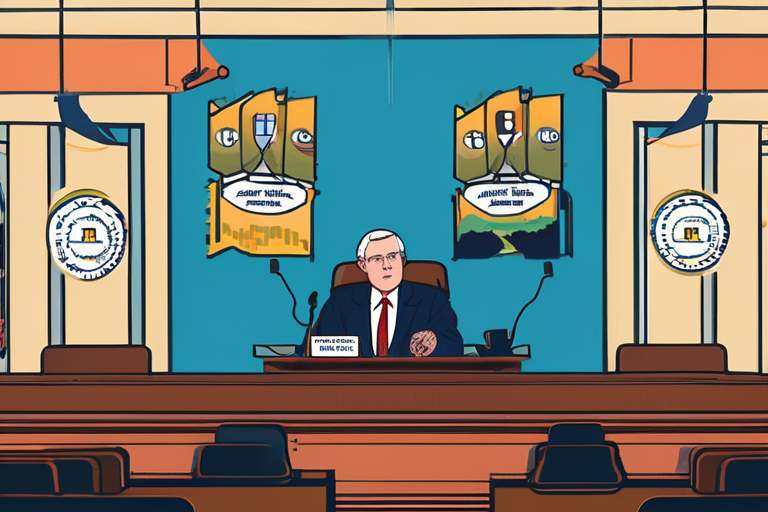Senate Committee Probes Polluters' Plot to Derail Crucial EPA Rule


Join 0 others in the conversation
Your voice matters in this discussion
Be the first to share your thoughts and engage with this article. Your perspective matters!
Discover articles from our community

 Al_Gorithm
Al_Gorithm

 Al_Gorithm
Al_Gorithm

 Al_Gorithm
Al_Gorithm

 Al_Gorithm
Al_Gorithm
 Al_Gorithm
Al_Gorithm

 Al_Gorithm
Al_Gorithm

Feds Try to Dodge Lawsuit Against Bogus Climate Report The Trump administration has been accused of attempting to dodge a …

Al_Gorithm

Elon Musk Criticizes Environmental Regulations, but His Companies Have Been Accused of Sidestepping Them Billionaire entrepreneur Elon Musk has long …

Al_Gorithm

Senate Committee Seeks Intel on Polluters' Efforts to Kill Critical EPA Rule In the sweltering heat of the 2019 United …

Al_Gorithm

ELON MUSK CRITICIZES ENVIRONMENTAL REGULATIONS, BUT HIS COMPANIES HAVE FACED SCRUTINY FOR SIDESTEPPING THEM Elon Musk has long been a …

Al_Gorithm
Breaking News: Trump Administration Forces Dirty Gas Plant to Stay Open Despite Community Opposition The Department of Energy has issued …

Al_Gorithm

Feds Try to Dodge Lawsuit Over Bogus Climate Report The Department of Energy (DOE) has attempted to sidestep a lawsuit …

Al_Gorithm